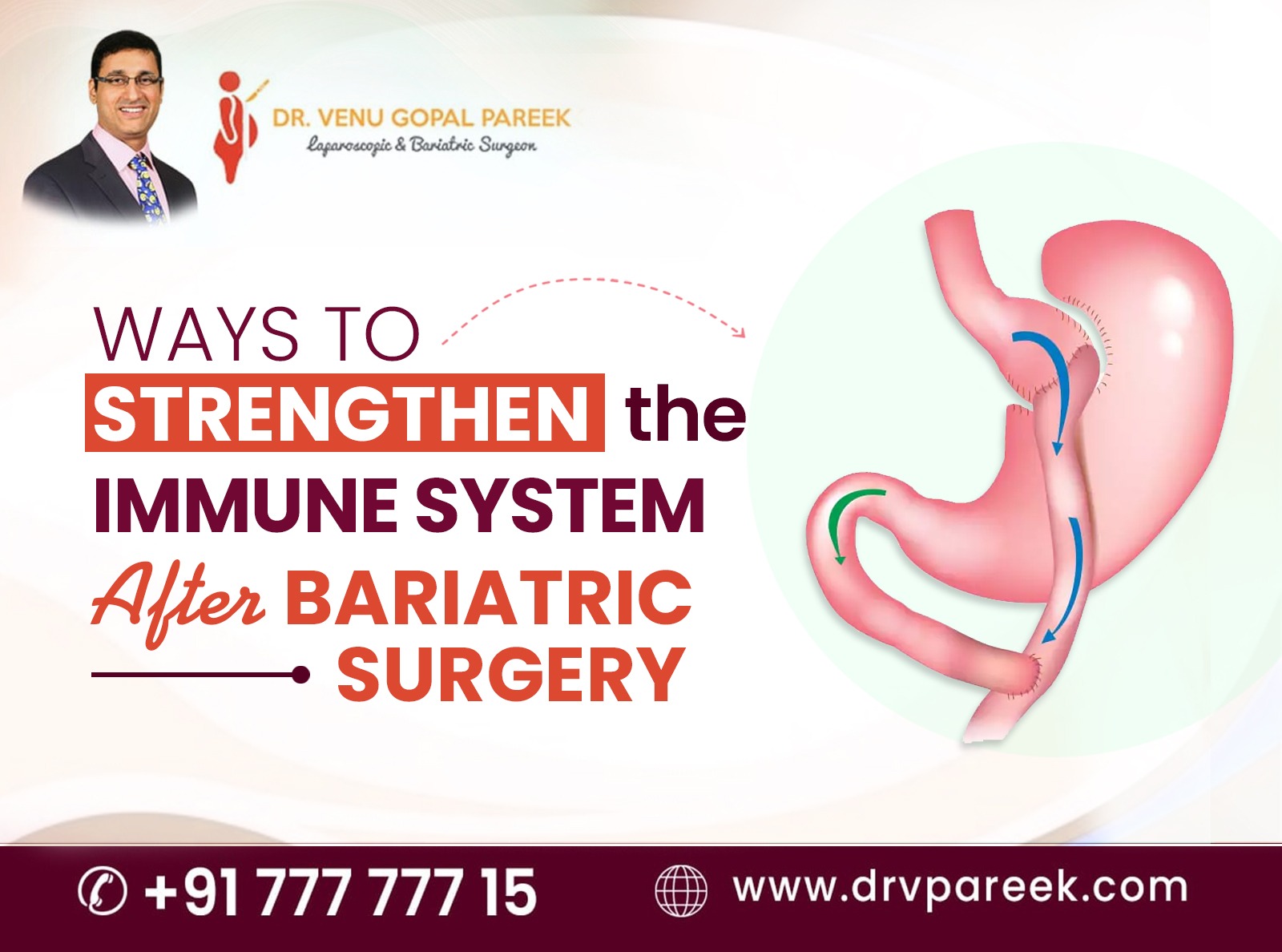
Ways To Strengthen The Immune System After Bariatric Surgery
After weight-loss surgery, your body demands a lot. It might take a little time to cope with the immune system after bariatric surgery. One needs to make major changes and adapt to a new lifestyle and dietary habits. The new way of life demands dedication from both the body and mind.
You need to be careful during this transforming stage, as you may face setbacks caused by acute diseases such as the flu, cold, or other viral diseases. Such illnesses can disturb balance and may hinder your weight loss journey. It makes the post-surgery regimen more challenging.
Boosting your immunity and avoiding illnesses is very important for a successful post-bariatric surgery transformation.
Dr. Venugopal Pareek, Hyderabad’s best bariatric surgeon, suggests what you can do to improve your immune system’s functioning, especially after bariatric surgery.
Eat more fruits and vegetables
Including vitamin-rich foods in your regular diet is the first step to strengthening your immune system. Fruits and vegetables such as oranges, grapefruits, papaya, and broccoli are rich in vitamin C. They play a key role in fighting against bacteria. Also, foods rich in vitamin D and Zinc have similar qualities. You can find Vitamin D in foods like salmon and mushrooms, and you can find zinc in shellfish such as clams, crabs, and shrimp.
Some other vitamins and minerals, like selenium, Vitamin A, and Vitamin E, can fight infections and strengthen defenses against bacteria and viruses. It is also believed that garlic and ginger have the natural ability to fight infections.
Refined carbohydrates and simple sugars should be avoided
After bariatric surgery, patients are strictly advised to avoid bread, cake, cookies, and other sweets. It is a fact that refined carbs and simple sugars increase the risk of obesity; moreover, they weaken your immune system because they feed unhealthy bacteria and yeast in the belly.
Regular exercise is a high-priority
Regular physical activity is the best-known way to boost your immune system. Even small activities like walking and swimming regularly help to build the best defence system for your body. Consult a physician and build a physical activity plan that works best for you. At least spending 15–30 minutes a day doing exercises like walking up and down stairs a few times a day or doing an indoor workout can improve your immunity.
Lower your stress
Stress and anxiety have a great negative impact on immunity, so lowering your stress levels can boost immunity. Activities such as yoga, deep breathing exercises, and mindful meditation are great ways to manage stress during these difficult times. Talking with friends or loved ones, watching something on TV that pleases you, or playing with your pet are some other helpful ways to manage stress.
Get quality sleep
Rest is essential for proper immune function. If you maintain a healthy diet, engage in regular physical activity, and minimise stress, you’ll be able to fall asleep easily. However, try to get seven hours of sleep daily.
Routine health check-ups with the doctor
Don’t miss follow-up appointments with your doctor; attend them regularly to monitor your overall health and take care of any issues immediately.
Quit smoking and alcohol consumption
Smoking and drinking alcohol can compromise your immune function. So avoiding them, at least for certain time, is good for your overall health.
Hygiene Practices
Follow specific hygiene recommendations, such as regular hand washing, to prevent the risk of spreading infections.
For personalized advice and guidance on how to boost immunity after weight loss surgery, contact Dr. V Pareek and his bairatric surgery team in Hyderabad. He can help you build a personalised plan to support your immune system. It is important to work closely with the surgeon after undergoing bariatric surgery because the recommendations might vary from person to person based on the type of surgery, individual health status, and other factors.







